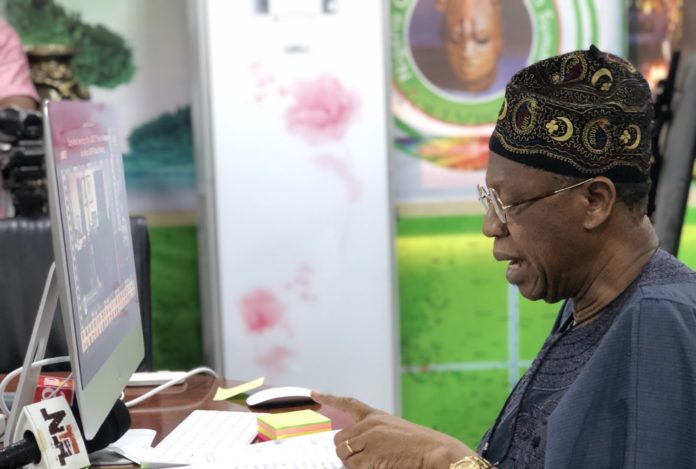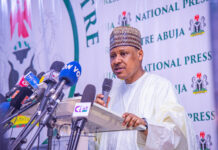
PROTOCOL
Please permit me to commend the organizers of this meeting. We were all preparing to converge in Seychelles when Covid-19 struck. But here we are, holding the meeting, though virtually, thanks to technology.
There is no clearer indication of how the world has changed since the advent of the pandemic. The ability to adapt and recover quickly, in the face of tough challenges, is called resilience, and that is what our sector, the Travel and Tourism Sector, industry, must leverage now, more than ever.
2. The sector is a driver of growth and economic prosperity, accounting for one in every ten jobs globally. The employment opportunities provided by the sector benefit a wide variety of people, especially the low-skilled, the youth and women.
3. Unfortunately, the sector is the most severely impacted by the pandemic, and it is really hurting at both national and international levels. While governments around the world are undertaking swift actions which are primarily focused on combating the spread of the virus, protecting the people and reassuring them of their safety, industries and organizations are also working hard to proffer solutions and recovery plans. Our sector, represented by the UNWTO, is equally committed through various consultations, activities and research at both multilateral and bilateral levels.
4. At sector and government levels, it is important to develop and implement defined plan and protocols that are country specific to effectively manage as well as mitigate the impact of the Covid-19 pandemic, taking into account lessons learned from previous incidents like the Tsunamis, Hurricanes, Sars and Ebola, among others.
5. As stifling as the effects of the pandemic may be, as soon as the restrictions are lifted and it is considered safe to travel, the Travel and Tourism Sector; considering its resilience which I referred to earlier, will – hopefully – be in the forefront of global recovery.
6. For us in Africa, after the pandemic, focusing on rural tourism will help speed up the recovery process in the Travel and Tourism Sector.
This is because rural tourism employs more people in Africa, and here I am talking about arts, crafts, culture and heritage. It is however imperative for the UNWTO to support Africa with a ‘Marshall Plan’ of sorts, in terms of
technical assistance, capacity building and grants. Talking of support, I’ll like to use this opportunity to commend the African Export-Import Bank (Afreximbank), which has pledged US$500 million for the Creative Industry in Africa.
This support, announced by Afreximbank President, Prof. Benedict Oramah at the Creative Africa Exchange in Kigali, Rwanda, in January, will come in handy as our sector seeks to recover from the effects of the Covid-19 pandemic.
7. Here in Nigeria, since recording our first index case of Covid-19 on February 27th 2020, the Federal Government has been implementing, through the Presidential Task Force (PTF) on Covid-19 set up by Mr. President, stringent Non Pharmaceutical Interventions (NPIs), which include Test and Trace, maintaining social distance, avoiding large gathering and ensuring personal hygiene. Domestic and international flights were banned, schools at all levels shut, most-affected areas locked down and most businesses closed. The Risk Communication Committee of the PTF, which is chaired by the Federal Ministry of Information and Culture, has also embarked on massive advocacy, public sensitization and social mobilization efforts to curtail the spread of the virus and protect the people. I am happy to announce that the measures are largely working, as we have been spared the predicted mass infections and deaths so far.
8. As of Monday, the 8th of June 2020, Nigeria’s Covid-19 figures stand at 12,486 cases and 354 deaths. The number of new cases has continued to rise, which means we are yet to flatten the curve. But the PTF is continuing to work with all concerned to do just that.
9. Before touching on what we have done here in Nigeria to aid the recovery of the Travel and Tourism, and indeed the entire Creative Industry, let me quickly touch on the palliatives put in place by the Federal Government to reduce the impact of the pandemic on Nigerians.
These include distribution of foodstuffs to a wide range of the population, cash payments to millions of the most vulnerable under the country’s Conditional Cash Transfers; continuation of the school feeding programme even though schools have been shut; a three-month repayment moratorium for all TraderMoni, MarketMoni and FarmerMoni loans that benefit the poor; a similar moratorium for all Federal Government funded loans issued by the Bank of Industry, Bank of Agriculture and the Nigeria Export-Import Bank; downward adjustment in the price of petrol and the approval of a waiver of import duties on all medical equipment and supplies into the country.
10. Also, the Central Bank of Nigeria (CBN) has announced a number of monetary policies aimed at cushioning the effects of the pandemic.
They include reduction of interest rate on all applicable CBN interventions from 9 to 5% and a one-year moratorium on CBN intervention facilities. But by far the biggest measure was the establishment of a 50 billion Naira stimulus package to help mitigate the impact of the pandemic on households, Micro, Small and Medium Enterprises (MSMEs) and the Creative Industry.
11. The private sector has also risen to the challenge, coming together – under the coordination of the CBN – to form the Coalition Against COVID-19 (CACOVID), which has raised billions of Naira to help fight the pandemic through general public awareness and the provision of fully-equipped healthcare facilities.
12. On our part as the Federal Ministry of Information and Culture, we have been compelled to act because the impact of the pandemic has been particularly devastating, due to the importance and the relevance of the sector to the national economy. The Travel and Tourism sector and indeed the entire Nigeria Creative Industry is large, diverse, dynamic and critical for economic growth, development and diversification. It is the biggest creator of jobs after agriculture. Also, the Industry contributes between 2.5 and 3% to the nation’s GDP
13. Realizing the imperative of having a collective and government-supported approach in dealing with the situation, we have set up a 22-member stakeholders committee to come up with immediate, short and long term economic stimulus and initiatives for the industry, in order to mitigate the effect of the pandemic. The committee, with membership drawn from the Tourism, Hospitality, Music, Film, Fashion, Photography and Broadcasting media, among others, is tasked with assessing the expected impact of the pandemic on the industry in general; advising the Government on how to mitigate job and revenue losses in the industry as well as to create succour for the industry small businesses; suggesting the type of taxation and financing that are best for the industry at this time to encourage growth, and advising the Government on any other measure or measures that can be undertaken to support the industry. We are also rejigging the National Endowment for the Arts to align it with the current realities. We are also studying the new set of guidelines/recommendations by the UNWTO as well as the ‘Safe Travel Protocols ‘ designed by the World Travel and Tourism Council (WTTC) for the purpose of domesticating them. I have no doubt that the measures we are putting in place will yield positive results in sustaining the Creative Industry in Nigeria
14. As Nigeria gradually opens up, just like the rest of the world, with domestic flights due to begin around the end of June and hotels and restaurants coming back to business, new protocols are being put in place for the safety and security of all. They include training of personnel on security and safety measures, infection control, adherence to government protocols, enhanced hygiene measures, use of
personal protective equipment and facility sanitation.
15 Once again, I want to most sincerely commend the organizers of this meeting. I have no doubt that the sharing of best practices, in the wake of the pandemic, and the outcome of the deliberations here will help to ensure a quick recovery for the Travel and Tourism Sector and the entire Creative Industry.
16. I thank you all for your kind attention






